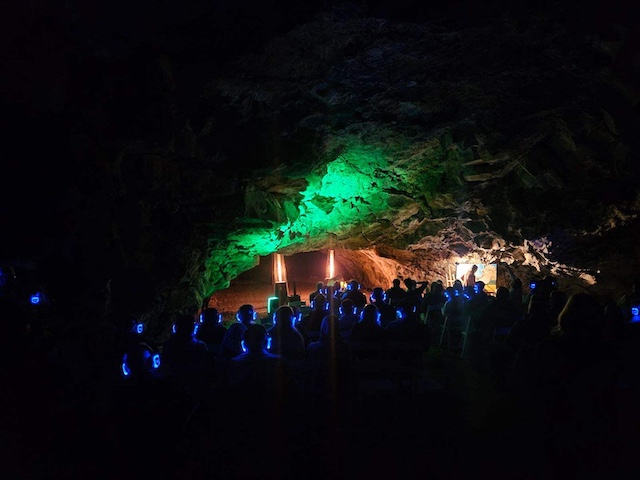U.S. Rep. Walden faces toughest test vs. McLeod-Skinner
Published 12:00 am Wednesday, October 17, 2018

- Jamie McLeod-Skinner, left, and Greg Walden
Democrat Jamie McLeod-Skinner has traveled more than 40,000 miles across Oregon’s 2nd Congressional District and raised nearly $1 million in an energetic bid to flip one of the most steadfastly Republican bastions in the country.
It’s an uphill drive all the way.
U.S. Rep. Greg Walden, R-Hood River, has represented the district, which includes most of Eastern, Central and much of Southern Oregon, since 1999. He’s chairman of the powerful Energy and Commerce Committee. In the 2016 presidential election, the district overwhelmingly supported Donald Trump over Hillary Clinton. Walden regularly wins re-election by more than 60 percent of the vote — in 2016, he topped 70 percent.
McLeod-Skinner says 2018 is different, pointing to other heavily Republican districts around the country captured by Democrats who have taken advantage of the unpopularity of President Trump’s tax and health care policies among parts of the electorate. Walden has been at the center of those debates as his committee handled the attempt to scuttle the Affordable Care Act (failed in the Senate) and pass deep corporate and individual tax cuts (passed by the Senate).
McLeod-Skinner has also brought a bankroll to the fight — though one dwarfed by Walden’s. But Walden’s incumbency means he has been fundraising since the last election and has drawn a total of $4.58 million in contributions.
Since starting her campaign, McLeod-Skinner has raised a total of just over $905,000. The difference means that although McLeod-Skinner has spent just over $289,000 in the race, Walden has spent 10 times more — just over $2.89 million, though much of it went to other candidates in other races.
The Bulletin asked McLeod-Skinner and Walden questions on three issues and let the candidates add a fourth they think is important.
Mark Roberts won the Independent Party nomination, only to be repudiated by his party over coarse comments regarding First Lady Melania Trump. The Independent Party has since endorsed McLeod-Skinner, though Roberts remains on the ballot.
Here are McLeod-Skinner and Walden’s responses:
Q: What can Congress do to ensure people in the 2nd Congressional District have access to affordable health insurance and health care? Please include your position on the Affordable Care Act and any cuts to Medicare and Medicaid.
McLeod-Skinner: Congress must do a better job of managing costs, promoting preventative care, supporting caregivers and insuring coverage of pre-existing conditions so all people in our district can access affordable physical and mental health care. My opponent wrote bills repealing the Affordable Care Act and allowing insurance companies to demand high premiums from 27 percent of Oregonians and 60 percent of farmers and ranchers with pre-existing conditions. I will work to improve the ACA and make sure everyone is covered, reduce system costs, protect Medicare and Medicaid and stand up to pharmaceutical companies by negotiating lower prices for life-saving medications.
Walden: I know what Medicare meant to my parents, and will always work to strengthen it. I helped create Medicare Part D, giving seniors access to more affordable drugs. I’m working to fix the ACA and drive down the cost of health care by putting an end to “gag clauses” that prevent pharmacists from telling customers how to save money on their medicines. I led the effort to fully fund community health centers and fund — for a record 10 years — the Children’s Health Insurance Program. I helped pass “Right-to-Try,” giving patients with incurable diseases access to promising medicines.
Q: What can Congress do in the future to lessen the number, size and impact of wildfires in Oregon? Please include whether or not you think global warming is involved in making the fire problem worse.
McLeod-Skinner: Lessening wildfire impacts to our communities is critical to safeguard public health and safety. It is also one important way to develop our economy and create jobs. Congress must supply more resources to implement fuel reduction, which experts and land management collaboratives in our district say is the best solution in the short-term. I will push for fire-suppression resources dedicated to our district that cannot be called away somewhere else, leaving our communities vulnerable. Wildfires are driven in part by increasing temperatures, and long-term solutions must include more investment to develop renewable energy and reduce heat-trapping carbon emissions.
Walden: We need more active management of our forests like we’re seeing on the Skyline Forest Collaborative to reduce fuel loads. Then we need to remove the burned dead trees — where appropriate — after a fire while they still have value and replant a new forest for the next generation. This year, I helped pass the largest reforms to forest management in over a decade, including a fix to “fire borrowing.” Catastrophic wildfires are major carbon emitters in Oregon, and the climate change problem will become more severe if we do not take action to bring active management back to our forests.
Q: What more can Congress do to improve both the number and quality of jobs in the 2nd Congressional District?
McLeod-Skinner: Congress should partner with the private sector to create good paying infrastructure jobs in renewable energy, rural broadband access, affordable housing, transportation and water systems for economic development in our district. I’ll focus on making sure rural communities have access to those resources. We need to stop the tariff war from hurting our agricultural markets. We need a level playing field of net neutrality and a fair pathway to documentation for agricultural workers. My opponent says the economy is booming, but the opposite is true in our district, where nearly half the people live near the poverty line.
Walden: America’s booming economy is due in part to historic tax relief for middle-class families and for small businesses. My wife and I have been small-business owners in this district since 1986. I understand what it takes to grow jobs. Wages are rising as employers compete to attract workers. With better trade agreements and incentives to bring jobs back to America, we will see more jobs. We must close the skills gap to ensure people have the education they need to compete in today’s labor force. That’s why I’ve supported legislation to strengthen career and technical education and training.
Q: Pick one other issue affecting the 2nd Congressional District on which you would like to see more action from the House in 2019.
McLeod-Skinner: Education is vital for uplifting our communities and strengthening our economy. Congress should invest more in early childhood and special education. I’ve proposed an exchange of public service for college education or trade school, enabling students to develop their professional skills without being buried in debt. This will benefit our rural communities by providing trained professionals — doctors, nurses, teachers, engineers, technicians and other skilled trades — to help grow our rural economies as they “pay off” their education through public service. It’s a win-win.
Walden: We need to fix the problems at the Veterans Administration. The men and women who have worn our nation’s uniform and fought for our freedom should NOT have to wait months for medical care and years to straighten out benefit issues. They deserve better. I’ve voted for historic funding for the VA, and for efforts to improve mental health care, opioid addiction treatment and suicide prevention programs. I’ve helped thousands of veterans in the 2nd District get the benefits and care they are owed and deserve. We must do more to reduce the backlog and delays at the VA.”
— Reporter: 541-640-2750, gwarner@bendbulletin.com






